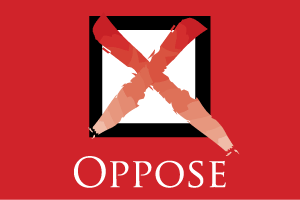 As the state struggles to climb out of a $54 billion deficit, contain more than 500 active wildfires, prevent further blackouts, solve an ongoing housing crisis and stop the spread of COVID-19, the Legislature is also considering whether to pass two identical CalChamber-opposed bills that will require millions in new spending at CalRecycle and potentially billions in new costs and liabilities on businesses.
As the state struggles to climb out of a $54 billion deficit, contain more than 500 active wildfires, prevent further blackouts, solve an ongoing housing crisis and stop the spread of COVID-19, the Legislature is also considering whether to pass two identical CalChamber-opposed bills that will require millions in new spending at CalRecycle and potentially billions in new costs and liabilities on businesses.
AB 1080 (Gonzalez; D-San Diego) and SB 54 (Allen; D-Santa Monica) are titled “the California Circular Economy and Plastic Pollution Reduction Act,” and recently came off the inactive file in the California Legislature after failing to pass last year. These bills have a stated goal of reducing the proliferation of single-use plastic packaging and priority single-use products in the natural environment by way of source reduction and recycling. These goals are laudable and shared by the California Chamber of Commerce. Unfortunately, without further amendments addressing the major deficiencies noted below, the bills are not implementable and will result in substantial negative repercussions for California businesses and the millions of Californians who will see higher prices or even some products disappearing entirely.
The question is, with so many actual emergencies threatening California, why is the California Legislature expending precious time and energy on two bills marred with so many outstanding issues?
Amendments Offered and Rejected by Authors
The California Chamber of Commerce and a coalition of industry groups have proposed detailed amendments since December 2019 to both AB 1080 and SB 54. These amendments offered in good faith would remove the entire coalition’s opposition, providing a pathway to achieve the mandates in the bills, including the 75% recycling rate and the requirement that all single-use packaging be recyclable or compostable by 2030, without destroying entire businesses and hurting millions of Californians in the process.
The amendments did not attempt to exempt any particular industry nor gut the goals of the bill. Instead, working from the above goals, the coalition offered amendments addressing the structural deficiencies in the bill, including a pathway to build more recycling infrastructure to meet the rates and dates in the bill, provide basic definitions consistent with California law, standardize the program across all jurisdictions and lower penalties so that a violation is not twice the penalty of an oil spill. All the major amendments were rejected and no progress was ever made toward alternative concepts or compromises.
State Recycling and Composting Infrastructure Deficient by 300%
The bills also ignore the substantial need for enhancing the recycling and composting infrastructure in California to meet the mandates in the bills. CalRecycle’s Standardized Regulatory Impact Assessment (SRIA) estimate for SB 1383 infrastructure is $20.9 billion to deal with just organic waste. CalRecycle notes that the increase in costs to private industry will “pass through completely to consumers, so it is also entered into the model via an increase in Consumer Price.”
The costs for recycling and composting infrastructure to implement SB 54/AB 1080 could meet or exceed the $20 billion figure. The bills are not implementable without addressing the need for infrastructure, including how it will be funded, how it will be permitted, and ultimately how those costs will impact California consumers.
The bills do not contain funding mechanisms or attempt to address siting challenges for infrastructure deployment needed at the local level to develop a robust functioning waste management system.
By CalRecycle’s own report before the COVID-19 pandemic and China’s National Sword policy in 2017, California has at least a 300% deficiency in recycling infrastructure for plastic, glass and paper, to name a few. (See CalRecycle report titled “State of Recycling in California,” Updated 2016)
By failing to standardize the program across all jurisdictions, the bills disincentivize private equity from investing in and supporting existing recycling systems to strengthen and where needed build new primary and secondary material recovery facilities and other related infrastructure. Investments on this scale require predictability, which is the opposite of the approach in these bills.
Up to $50,000 Penalty Per Violation, Per Day
AB 1080 and SB 54 would levy an administrative civil penalty of up to $50,000 per violation per day without a cap for most producers, creating an arbitrary, potentially limitless and unreasonable liability for producers that is not rationally related to the purported violation.
For “small producers,” the $25,000 per violation per day civil penalty is still draconian, likely putting them out of business for failing to meet recycling rates or other mandates in the bill. To put these penalties in perspective, the maximum penalty allowed under these bills is equivalent to the twice the maximum penalty levied for major oil spills in California (see Public Resources Code § 3236.5 (a)(8)(b)(1)(B)).
Other Major Issues Not Addressed
- Reestablishes the prohibition on retailers selling any noncompliant single-use packaging, thereby creating a ban on packaging and the products inside them for not meeting recycling or composting mandates. It is unclear how products would get reinstated once deemed noncompliant.
- Excessive Cal Recycle Authority: By ceding so much authority to CalRecycle, the bills will inevitably create an unsustainable regulatory program resulting in higher costs of all packaging and products covered by this legislation, which Cal Recycle acknowledges will pass through to consumers resulting in higher prices for the same products.
- Lacks Due Process: Authorizes Cal Recycle to develop the entire set of regulations pursuant to these bills through emergency rulemaking powers. Under emergency rulemaking, agencies only have to provide the public with 5-days notice and comment of the regulations. The bills go farther by waiving the administrative procedures act protections by extending the duration of any emergency regulations adopted from 180 days to two years.
- Private Right of Action: Arguably creates a new private right of action for trial attorneys to bring lawsuits against companies not in compliance with the mandates.
- No Standardization: Despite trying to create a statewide program, the bill still allows local jurisdictions to determine which recyclable and compostable items to collect at curbside and which materials to ban or levy fees on. California businesses cannot design packaging nor meet statewide recycling mandates if each local jurisdiction is free to set its own local rules for the collection of this material.
- Lacks Definitions: Very few terms are defined in the bill. Instead, the authors direct Cal Recycle to define even the most basic terms, such as recyclable and compostable, for example.
- Flawed and Ambiguous Source Reduction Mandate: Source reduction to the “maximum extent feasible” is a standalone mandate that is left up to Cal Recycle to determine. Given the scope of products on the market, the bill contemplates Cal Recycle essentially becoming a “packaging czar” for the entire California marketplace to set requirements on how much a package could be source reduced within a company’s supply chain. This could lead to onerous and potentially arbitrary requirements.
- “Plastics Only” Scope includes paper products with a coating: The proposed amendments do narrow the bills from every material type to focus on plastic single-use packaging. However, any amount of plastic could implicate a product that is not exempt and the legislation expressly includes paper products with a plastic coating (e.g. non-stick coatings). Furthermore, recent amendments direct CalRecycle to examine expanding the program to include other materials in the future and sunset existing recycling programs.
- Uncapped Fees: Grants new authority for CalRecycle and the Department of Tax and Fee Administration to establish new fees via emergency regulation. These fees, along with the penalties and other costs, will increase costs for consumer goods across California’s economy.
- No exemption for over-the-counter medicines: Over-the-counter medicines are not exempt despite prescription and animal medicines being granted an exemption with no clear public policy rationale.
Vote ‘No’ on AB 1080 & SB 54
We agree businesses have a responsibility to minimize waste and support a working recycling system, and frankly, much more must be done. The coalition opposes AB 1080 and SB 54 not because we are against recycling or otherwise protecting the environment, but because the bills create an uncertain compliance path with draconian fines, unchecked regulatory fees, product bans for non-compliance, a patchwork of local compliance hurdles, and a failure to address the infrastructure deficit – all of which will likely be developed under rushed emergency rulemaking with no more than 5 days notice and comment to the public.
The CalChamber is urging members to ask their state representatives to vote “No” on AB 1080 and SB 54.
Staff Contact: Adam Regele


